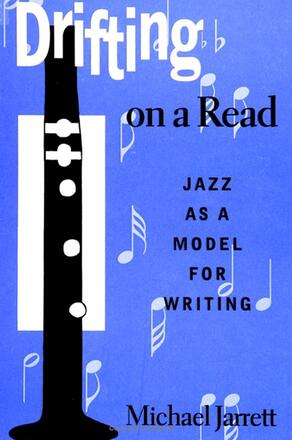
Drifting on a Read
Jazz as a Model for Writing
Alternative formats available from:
For almost a century, writers such as Ralph Ellison, Michael Ondaatje, and Ishmael Reed have expressed an affinity for jazz, hearing the music as a model for writing. Jarrett examines their work and the work of others who have brought jazz into language, pushing "interpretation" into the realm of "invention."
Description
For almost a century, writers such as Ralph Ellison, Michael Ondaatje, and Ishmael Reed have expressed an affinity for jazz, hearing the music as a model for writing. Michael Jarrett examines their work and the work of others who have brought jazz into language, pushing "interpretation" into the realm of "invention. "
Michael Jarrett is Associate Professor of English at The Pennsylvania State University, York Campus. He is the author of Sound Tracks: A Musical ABC: Volumes 1–3.
Reviews
"What a smart, witty, funny book! It's a way out there on the experimental branch of composition theory, but the composition tree is one of those critters that puts down new roots in improbable places. Can we use jazz music—and concepts drawn from jazz composing—to help students become better writers? Mike Jarrett shows us how we can and why we should. It makes me wish I were at the beginning of a teaching career instead of near the end of it. I really like this book!" — Robert Scholes, Brown University
"Jarrett solves the puzzle of how to give music the place it deserves in the discourse of cultural studies (dominated as it has been by discussions of cinema and television). By performing in his own prose the rhetorical tropes he invented out of jazz, Jarrett has composed a masterpiece of heuretics. " — Gregory Ulmer, author of Heuretics: The Logic of Invention
"Few other books have made the outer reaches of contemporary literary theory so accessible as Drifting on a Read. Like a bare handful of other authors, Jarrett has found an engaging narrative voice and a lucid prose style to serve a highly sophisticated and ambitious project. This book attempts 1) a radical critique of jazz journalism, jazz history, and the various attempts to 'contain' the music within discourses related to writing (photographs, performance venues, album covers, etc. ), and 2) an equally radical attempt to use jazz as a model for writing. Jarrett succeeds admirably in convincing the reader that both projects are worth the effort. " — Krin Gabbard, author of Jammin' at the Margins: Jazz and the American Cinema
"The book is fascinating—one of the most insightful analyses of the representation of jazz I've seen. " — Charles Hersch, author of Democratic Artworks: Politics and the Arts from Trilling to Dylan